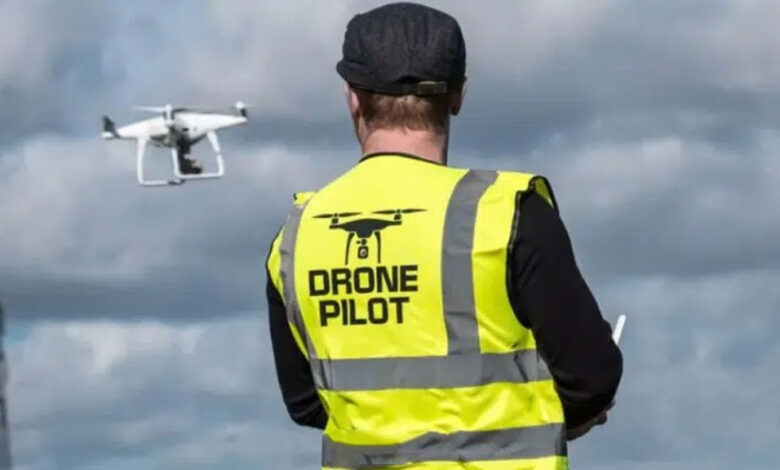
How to Apply and Prepare for Drone Pilot Learnership Positions in South Africa for 2025
Becoming a drone pilot is an exciting career path with opportunities across various industries. Here’s a comprehensive guide to help you apply and prepare for drone pilot learnerships in South Africa for 2025.
Understanding the Role of a Drone Pilot
Drone pilots operate Unmanned Aerial Vehicles (UAVs) to carry out tasks in industries like:
- Agriculture: Monitoring crops and livestock
- Media Production: Capturing photos and videos for films and marketing
- Security and Surveillance: Inspecting premises and conducting reconnaissance
- Delivery Services: Transporting goods to remote areas
- Infrastructure Inspections: Assessing buildings, power lines, and pipelines
The role requires technical expertise, attention to detail, and an understanding of aviation regulations.
Researching Available Learnerships
Drone pilot learnerships are available through various avenues, such as:
- Aviation Training Schools: Institutions offering specialized drone training programs
- Private Drone Companies: Organizations that recruit and train drone operators
- Government Initiatives: Programs funded to boost skills development in aviation technology
Where to Find Learnership Opportunities
- Edupstairs and SA Youth platforms
- Company career portals
- Online job boards and forums
General Requirements for Drone Pilot Learnerships
To qualify for a drone pilot learnership in South Africa, you generally need:
- Basic Requirements:
- South African citizenship
- Matric certificate (preferably with strong marks in mathematics and physical science)
- A valid South African ID
- Fluency in English
- Basic computer literacy
- Additional Preferences:
- Passion for aviation or technology
- Familiarity with remote-controlled devices
- Problem-solving skills and attention to detail
Required Documents
Prepare the following documents to ensure a smooth application process:
- Certified copies of your Matric certificate and ID
- A detailed and updated CV
- A motivational letter outlining your interest in drone piloting
- Proof of residence (if required)
How to Apply for a Drone Pilot Learnership
1. Identify Opportunities
Search for reputable training providers such as the South African Civil Aviation Authority (SACAA) or private drone academies offering learnerships.
2. Submit Your Application
Carefully follow the application instructions provided on the website or portal. Double-check that all documents are up-to-date and meet the requirements.
3. Complete Assessments
Applicants may need to pass aptitude tests, medical evaluations, or interviews as part of the selection process.
4. Attend Information Sessions
Participating in orientation sessions can help you understand the program’s structure and expectations.
Preparing for the Selection Process
Learn Basic Aviation Concepts
Study topics like aerodynamics, UAV components, and flight safety regulations to get a head start.
Practice Drone Skills
Familiarize yourself with technology by using drone simulators or hobby drones.
Stay Fit and Focused
Physical and mental agility are often tested during the application process, so maintain a healthy lifestyle.
Understand Drone Regulations
Study Part 101 of the Civil Aviation Regulations, which governs drone operations in South Africa.
Training Components of Drone Pilot Learnerships
Most drone pilot learnerships include the following:
1. Theoretical Training
Learn about airspace management, drone laws, and safety protocols.
2. Practical Training
Gain hands-on experience piloting drones under expert supervision.
3. Certification
Upon successful completion, participants typically receive a Remote Pilot License (RPL), a qualification that enhances employability.
Example: Drone Pilot Learnership Opportunity
Here’s an example of a drone pilot learnership opportunity in South Africa:
- Organization: Drone Academy of South Africa
- Focus Area: Agriculture and environmental monitoring
- Duration: 12 months
- Includes: Theory, practical training, and RPL certification
- Location: Johannesburg
- Stipend: R4,500 per month
- Application Deadline: March 15, 2025
Post-Learnership Career Opportunities
After completing a drone pilot learnership, you can explore various career paths:
- Join the Workforce: Work for companies in industries like agriculture, media, or security.
- Start Your Own Business: Launch a drone service business offering mapping, surveillance, or delivery services.
- Specialize Further: Pursue additional training in areas like thermal imaging or GIS mapping.
Tips for Success as a Drone Pilot
- Network: Attend aviation events and join drone communities to connect with industry professionals.
- Stay Updated: Keep track of advancements in drone technology and industry trends.
- Develop Soft Skills: Strong communication, teamwork, and problem-solving skills can set you apart from the competition.
Pursuing a drone pilot learnership in 2025 is an excellent way to enter a growing field with diverse opportunities. By preparing effectively and applying strategically, you can take the first step toward a rewarding career in UAV technology.



